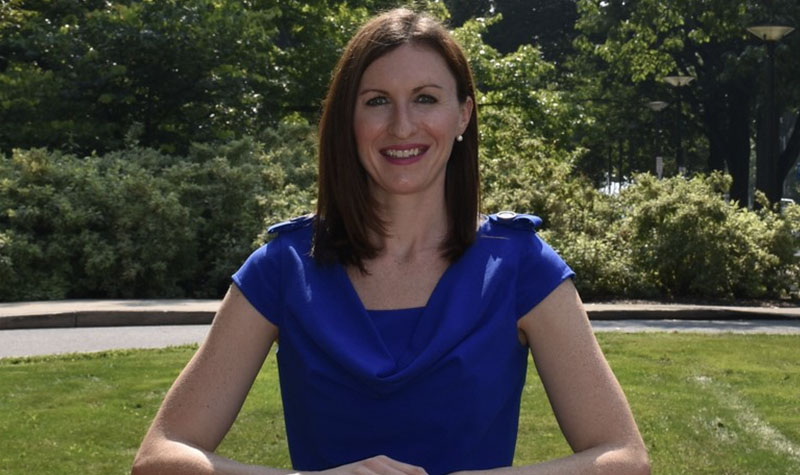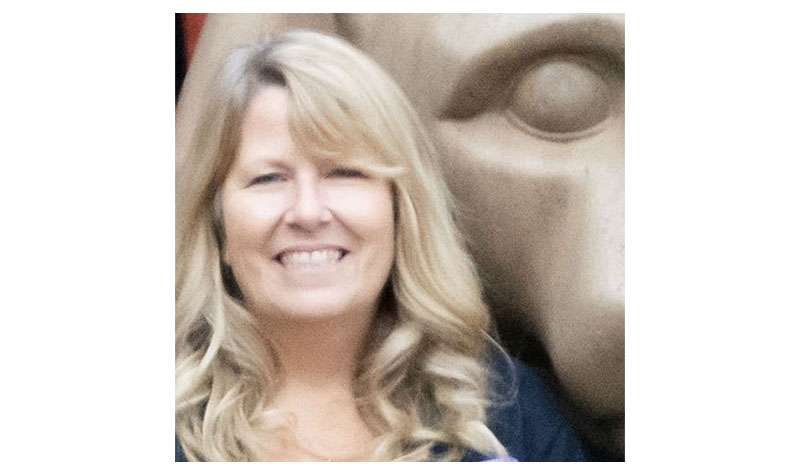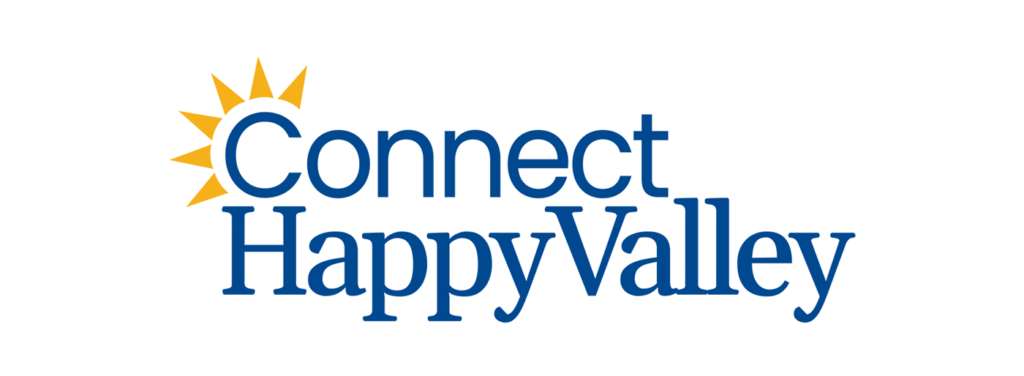 Photo Credit: Penn State University
Photo Credit: Penn State University
By Holly Riddle
It used to be all about millennials. They ate too much avocado toast. They needed participation trophies. Helicopter parents made them aimless. Now, Gen Z adults, those under 26, are both up-and-coming college graduates and the newest members of the workforce. They’re supposedly switching up office speak and email lingo, looking for employers with values, and have their own ideas about what success looks like.
We wanted some first-hand knowledge about Gen Z and their relationships with work. Here’s what both local career services experts who work with students and the students themselves had to say.
“It’s all relative”
According to Dr. Katharine Staley, Ph.D., a Happy Valley-based licensed clinical psychologist and the founder of River Rocks Consulting, “[Gen Z is framed] as not willing to work as hard, but I don’t think that’s true. I don’t think they’re willing to work without adequate compensation… but I think they are incredibly hard workers and are willing to work hard as long as the benefits are really salient to them — and that’s what employers need to get their heads around. That old model of ‘I gave you a job, you’re lucky to have it, you’ll work hard two years and get a small raise’ is just that — an old model.’”
Ashley Rippey, executive director of the business career center in the Smeal College of Business at Penn State, further pointed out that, often, many of the challenges that older generations have with newer generations in the workplace are a matter of relativity. In her role, Rippey works with undergraduate and graduate business students at Penn State, providing career-focused resources that range from networking events to interview training.
 Ashley Rippey, executive director of the business career center in the Smeal College of Business
Ashley Rippey, executive director of the business career center in the Smeal College of Business
She said, “Today’s Boomers in the workplace would say that they had different perspectives from the folks who were 30 or 40 years older than them when they started working. It’s all relative, and this is going to continue. Today’s Gen Zs, 40 years from now, will have different work and communication styles than the people who are younger than them. That’s why intergenerational communication and education is so important — getting to know people without judgment and having authentic work conversations.”
Gen Z workplace priorities
So what are Gen Z’s most pressing priorities in the workplace, that might be different from what their parents and grandparents wanted? Both Rippey and Staley pointed to a few overlapping factors, including proper compensation and livable wages. However, Rippey noted that, from her experience, compensation doesn’t take top priority.
I think they are incredibly hard workers and are willing to work hard as long as the benefits are really salient to them — and that’s what employers need to get their heads around. That old model of ‘I gave you a job, you’re lucky to have it, you’ll work hard two years and get a small raise’ is just that — an old model.
She said, “I’ve now been here nine and a half years and, when I first started, when students had multiple offers and we were trying to dissect how they were going to pick offer A over B, over C, salary tended to be the number one priority. Oftentimes, honestly, they weren’t really able to see that $80,000 in New York City wasn’t as good as $70,000 in Charlotte. They were focused on the number. They’re not really focused on the numbers so much anymore. Yes, they want to survive, but now, what tends to be more important is purposeful and meaningful work. Students are very focused on DEI and sustainability ethics.”
Sue Chappell, associate director of career services at Penn State, likewise explained that, when looking at the latest National Association of Colleges and Employers (NACE) data from surveying Penn State students, the results are much the same. She said the NACE survey asked students to rank what they were looking for in a job by what was most important to them, and things that came out on top included friendly coworkers, job security and career development opportunities — but that salary didn’t even make the top 10.
 Sue Chappell, associate director of career services at Penn State
Sue Chappell, associate director of career services at Penn State
She said, “Salary is important, but [students’] work-life balance and the opportunity to be in an environment that feels authentic to them is ranked higher.”
They’re not really focused on the numbers so much anymore. Yes, they want to survive, but now, what tends to be more important is purposeful and meaningful work. Students are very focused on DEI and sustainability ethics.
Both Rippey and Staley likewise also mentioned flexibility, work-life balance and mental health as factors that Gen Z considers during a job hunt — factors that research has shown overlap.
Student perspectives
Research and survey data aside, what do Gen Z Penn Staters who are about to enter the workplace say they’re looking for when they decide to accept or not accept, or even apply?
“The first thing I want is the ability to learn,” said Sanjana Devarakonda, a third-year finance major at Penn State. “I don’t want a job … where you keep doing the same thing day in and day out with no change in what you’re learning or doing. I want a job where the work is fluid and I’m able to learn a lot in a short amount of time.”
Salary is important, but [students’] work-life balance and the opportunity to be in an environment that feels authentic to them is ranked higher.
“The second thing is flexibility,” she added. “Hybrid is my preference, but I’m totally fine if it’s in-person, as long as [the employer] is willing to work with you and realizes you’re a person outside of your work.”
Anika Sinha, a senior econ and psych major at Penn State, said something similar about the importance of employers recognizing an employee’s existence beyond the workplace. It’s part of why she decided to accept a post-graduation role at PwC in New York City, following an internship with PwC over the summer.
 Anika Sinha, senior econ and psych major at Penn State
Anika Sinha, senior econ and psych major at Penn State
She said, “I found that, in a lot of industries and in a lot of companies, it’s not necessarily the case that they value your health outside of work, especially as a first-year analyst/associate. Working in the financial sector can come with working long hours each day; however, while there are some days and weeks that you do have to work a lot, even in my experience this summer, I saw that PwC tries its best to make sure that you’re doing well, mentally and physically. Just your health in general is very important. I found that really important to me, and that that was the type of community I wanted to be a part of.”
What are the red flags that show Gen Z-ers that a job might not be a great fit?
The second thing is flexibility,” she added. “Hybrid is my preference, but I’m totally fine if it’s in-person, as long as [the employer] is willing to work with you and realizes you’re a person outside of your work.
Student Gabrielle Sabatini, who plans to pursue a career in wealth management near Washington, D.C., post-graduation, said, “If the conversations are very forceful in the interview, it shows me that my personality may not fit well with the other employees there. It would also be a red flag if people do not treat you fairly, even though you are the new employee.”
She added, “[Employers] need to be able to take notes from all levels of employees and not treat the company like a hierarchy.”
Devarakonda also mentioned the need for authentic DEI efforts, saying, “I’m an Indian woman, and a lot of times, I see companies talk about diversity, but it turns into tokenism. There’s a huge difference between companies embracing diversity and wanting to help people who are diverse, as opposed to saying [they’re diverse] because that’s a trend right now. I’ve gotten pretty good at picking up on what’s really diverse and what’s not.”
How employers stand to benefit
Our interviewees believe that making adjustments for Gen Z will give employers an edge over the competition and may benefit every generation in the process.
Chappell said, “Savvy recruiters … are getting a generation really dedicated to being inclusive and seeking out equity, both during their time as undergrads, but certainly as they step into the workplace. That is a tremendous value to employers. They’re also extremely innovative and entrepreneurial — I think the most entrepreneurial generation that I have encountered during my time in higher ed. That, too, is a wonderful thing for employers to bring into their workforce. They’re not afraid to think outside of the box.”
Devarakonda and Sinha mentioned their generation’s open-mindedness, responsibility toward the environment and marginalized groups, adaptability, tech-savviness and empathy as benefits.
There’s a huge difference between companies embracing diversity and wanting to help people who are diverse, as opposed to saying [they’re diverse] because that’s a trend right now.
So, how can you attract Gen Z talent to your team?
Rippey said, “The employers who find that they’re successful in hiring and retaining [Gen Z] talent are the ones who are really transparent, not just about their [recruiting] process, but about what it’s like to work at that company. They have a lot of support resources in place for employees, and they talk about those as much as they talk about salary.”
Chappell likewise noted the importance of transparency during the recruiting process, noting how Gen Z interviewees prefer in-person recruitment if possible, and virtual interviews as a second-best. She said, “It matters to them that employers are making the effort to get to know them and… engage with them.”
Staley recommended, “If employers do want to cater to Gen Z-ers… pay attention to mental health needs and wellbeing. Honor that and have a really good employee assistance program, with, say, 10 free therapy sessions. Those are the types of things that Gen Z-ers would look for and consider a plus.”






